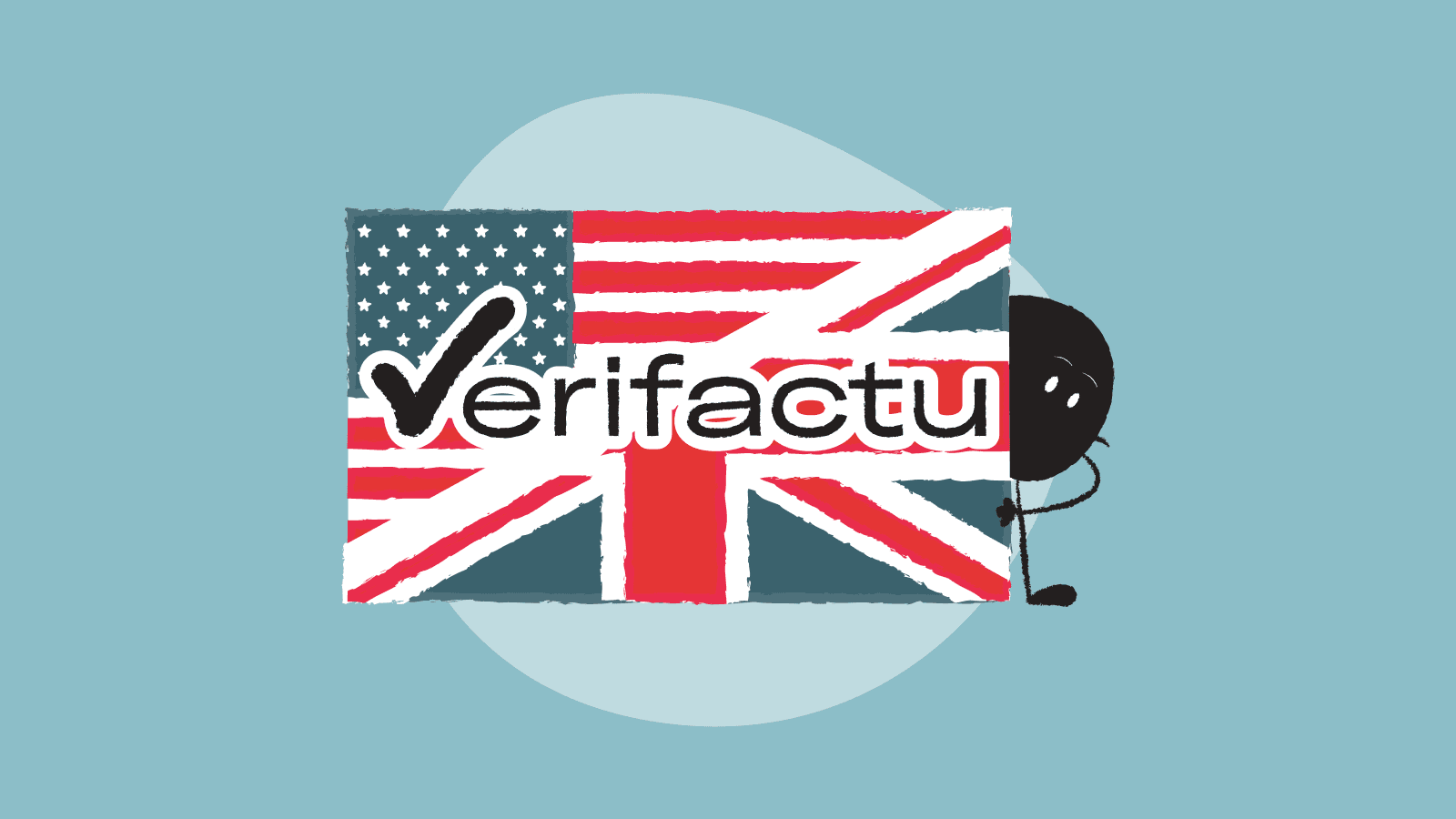You're here:
What is Verifactu? Explained in English
In this article

With the dawn of 2025, a significant shift in the fiscal landscape of Spain is emerging, demanding the attention of businesses nationwide. This shift is driven by the introduction of Verifactu, part of the measures under Anti-Fraud Law 11/2021. As businesses, including freelancers and large corporations, brace for this change, understanding its nuances becomes paramount.
Set to be fully mandatory by 2026, Verifactu is part of a transformative approach to reporting known as electronic reporting or e-reporting, and it involves electronic invoicing. Both of these digital transformations emphasize transparency and security. The change is part of the general rise of digital reporting requirements across the EU and other parts of the world.
Without further ado, here’s everything you need to know to keep your business compliant in Spain.
When does Verifactu come into effect?
Verifactu comes into effect at different times depending on the type of business, with deadlines designed to accommodate different needs.
What remains the same for all businesses? The risk of noncompliance. If you do not adopt Verifactu by your relevant deadline, then you risk a fine from Hacienda. More information on penalties in the next section about compliance!
For software manufacturers
The deadline for compliance by software manufacturers, initially set for July 1, 2025, was extended to July 29, 2025, via a Ministerial Order in October 2024. This change allowed developers a crucial window to update their invoicing solutions. This means that since mid-2025, only Verifactu-compatible software are viable on the market, prompting developers to swiftly adopt the required standards.
For companies and legal entities
Companies must align their invoicing systems with Verifactu by January 1, 2026. This deadline marks the start of a new era in fiscal management, requiring timely preparation and adaptation to fully leverage the benefits of the system.
For self-employed and unincorporated entities
Freelancers and smaller unincorporated businesses have an additional six-month transition period, with a deadline set for July 1, 2026. This staggered timeline acknowledges the unique challenges faced by self-employed individuals and ensures a smoother transition.
Who needs to comply with Verifactu?
Verifactu applies broadly to businesses and freelancers operating within Spain's common territory, with the exception of the Basque Country and Navarre. These areas operate under separate fiscal systems, which we’ll explain in a later section.
Entities already under the Immediate Supply of VAT Information (SII) are exempt, as their invoices are already reported in real-time. Meanwhile, transactions that aren’t subjected to mandatory invoicing or allowed under special regulations also remain outside Verifactu’s mandate.
As the infrastructure of Spain’s tax agency, Agencia Tributaria (AEAT), prepares for full operation, businesses must begin adapting immediately. While automatic submissions to tax authorities are not yet mandatory in 2025, employing Verifactu-compliant systems prior to the 2026 deadline ensures seamless compliance and avoids potential penalties.
What are the penalties for Verifactu noncompliance?
Companies using non-compliant software may face fines of up to €50,000, while developers offering outdated software could face penalties of up to €150,000 per client and fiscal year.
There are also specific penalties for deleting invoices or modifying invoice records. The whole point of an e-reporting system like Verifactu is to finalize official transaction documents and prevent potential fraud.
How does Verifactu operate? A step-by-step guide
Verifactu introduces a meticulous process, ensuring every invoice enhances fiscal transparency through secure and efficient mechanisms. Here’s a breakdown of the key steps:
1. Invoices sent via software
Leveraging your invoicing system, each invoice generates an Invoice Registration Record (Registro de Facturación de Alta). This record captures key tax invoice details – such as tax ID, date, and VAT – combined with unique security metadata, ensuring the invoice is immutable and protected against alterations.
2. Automatic submission to tax authorities
If your software operates in Verifactu mode, each invoice is automatically sent to the AEAT. This critical step, achieved almost instantaneously, involves generating a Secure Verification Code (Código Seguro de Verificación, CSV) which is unique to each invoice. The AEAT uses this code to verify the authenticity and validity of the invoice. Any problems with the data prompt an error message, requiring correction and resubmission.
3. Issuing invoices with QR codes
Invoices now incorporate a QR code alongside a phrase like "Factura verificable en la Sede Electrónica de la AEAT" or simply the word “VERI*FACTU”, assuring recipients of its registration and validation by tax authorities. This QR code, when scanned, links to the AEAT’s platform, providing immediate confirmation of the invoice’s authenticity.
4. Secure record storage
Verifactu mandates the secure storage of all records, utilizing hash chaining to ensure sequential integrity. Compliance requires that records be stored both locally and within the AEAT’s secure environment, safeguarding against unauthorized alterations.
5. Facilitating data accessibility
Amongst the significant advantages of Verifactu is enhanced data usability. The AEAT’s electronic platform offers easy access to billing records, streamlining tax return processes and enhancing record management. Receivers of Invoice recipients can also quickly verify their accuracy, simplifying expense reporting and VAT deductions.
Verifactu functions like a digital tax stamp: By integrating Verifactu into everyday invoicing, businesses and freelancers alike guarantee that every transaction is verifiable and compliant, reinforcing trust and reliability across all fronts.
How Verifactu aligns with e-invoicing systems
It's crucial to recognize overlapping initiatives because Verifactu is part of a broader strategy to digitize and streamline Spain's invoicing landscape and tax compliance.
Verifactu vs. B2B e-invoicing under the Crea y Crece Law
While B2B e-invoicing focuses on digital records to manage payment timelines via structured formats, Verifactu covers comprehensive invoicing records to ensure fiscal compliance. It is designed to work alongside these systems rather than replace them, introducing a robust fiscal layer that verifies the integrity of each transaction.
Verifactu vs. SII and TicketBAI
As a bridging initiative, Verifactu targets the common territory by focusing on SMEs and freelancers, providing a nationwide standardization model. It complements existing systems such as SII and TicketBAI, which cater to specific operational needs or regional requirements.
For more information, check out this general guide to Spain’s e-invoicing and digital reporting requirements.
5 benefits of Verifactu for businesses and freelancers
Adopting Verifactu is more than just meeting legal requirements, it's an opportunity to elevate your operational efficiencies. Here are five benefits you can expect:
1. Enhanced fiscal transparency
The real-time submission mechanism reduces inspection risks, ensuring that businesses avoid penalties and enjoy smoother fiscal oversight.
2. Simplified tax returns
Using pre-filled data optimizes tax return workflows, minimizing errors and reducing the administrative burden on businesses.
3. Optimized internal management
By digitizing invoice processes, businesses improve income tracking and reduce accounting errors, driving modernization in accounting practices.
4. Bolstered trust and credibility
The "Verifiable Invoice" emblem acts as a quality seal, enhancing your business's credibility in the eyes of clients and partners.
5. Fairer competition environment
Verifactu addresses underground economy challenges, fostering an environment of fair competition and active digital integration.
How to adopt Verifactu: Actionable steps
To ensure your business is ready for 2026’s Verifactu requirements, consider these proactive measures:
1. Understand and plan effectively
Determine your specific compliance timeline and mark these critical dates in your strategic calendar to stay ahead.
2. Upgrade to compliant software
Engage with your software provider to ensure that your billing tools support Verifactu requirements. Take advantage of their resources, including certifications and updates.
3. Choose your approach: Verifactu or no Verifactu
Weigh your business's needs when determining real-time submissions versus local storage options, based on your billing volume and risk strategies.
4. Educate and train your team
Educate your team on Verifactu’s processes, ensuring they are familiar with system operations, such as QR codes and data validation.
5. Utilize AEAT's resources
Leverage the numerous resources offered by AEAT, from technical documentation to FAQs, ensuring your business's smooth transition.
6. Pilot test solutions
Pre-deadline testing with sandbox solutions helps identify and address potential issues, ensuring a seamless Verifactu launch.
7. Communicate your transition
Inform your stakeholders of your invoicing updates, emphasizing the enhanced security and trust your Verifactu transition offers.
8. Implement robust record-keeping strategies
Ensure ongoing compliance by backing up records while maintaining access to your historical data, safeguarding against potential audits.
What can help with Verifactu?
Verifactu represents a step forward in Spain's ambition to cultivate a transparent and accountable fiscal environment. Collaboration with partners like Quaderno, who are certified collaborators with the Spanish tax agency AEAT, ensures your business is equipped for this transition. Quaderno provides an e-invoicing solution that integrates seamlessly with Verifactu’s requirements, ensuring compliance while enhancing operational efficiencies. Plus, we offer excellent customer support in multiple languages!
For businesses ready to embrace the future, engaging with Verifactu is not just a compliance obligation – it’s an invitation to elevate and streamline every aspect of your company’s fiscal operations.
Explore Quaderno’s Verifactu solution for comprehensive e-invoicing that meets all your Verifactu needs. Stay informed, stay compliant, and focus on growing your business.
Note: At Quaderno we love providing helpful information and best practices about taxes, but we are not certified tax advisors. For further help, or if you are ever in doubt, please consult a professional tax advisor or the tax authorities.


